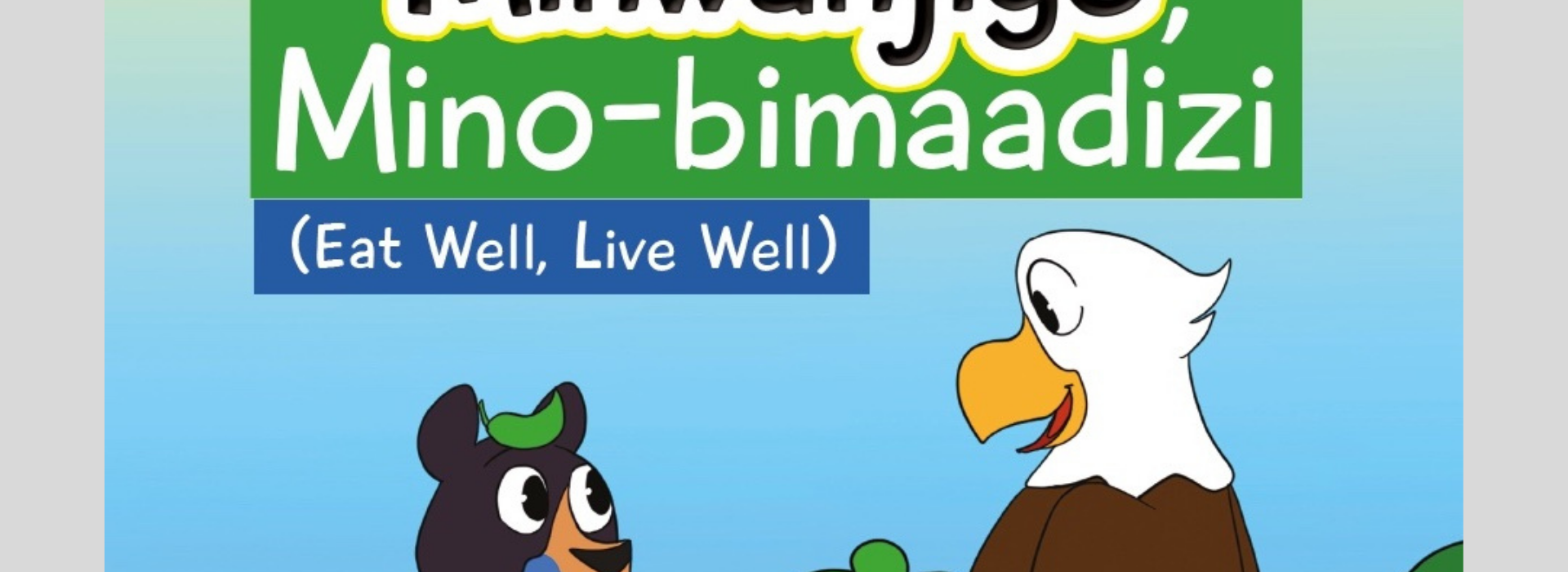
Minwanjige, Mino Bimaadizi (Eat Well, Live Well) Inspires Native Youth Across the Region
It’s no secret that there are many challenges faced by rural Native communities across Indian Country linked to limited access to healthcare and education.
Native American youth are the most at-risk population in the U.S. and face serious disparities in these areas. Understanding this rural reality, Anna Wirta Kosobuski, EdD, who is an assistant professor in the Department of Biomedical Sciences at the University of Minnesota Medical School, Duluth campus and Bois Forte Band of Chippewa (Ojibwe) band member, has taken charge in a special effort to improve access to meaningful, culturally-tailored resources that match the learning styles of Anishinaabe children.
In response to the need for accurate information about nutrition and wellness, Dr. Wirta Kosobuski and her team developed a series of books through the Kina project — the Ojibwe word for “together”— designed in partnership with a northern Minnesota Native American community to empower students in kindergarten through sixth grade to take control of their health through a better understanding of thoughtful eating, the impacts of food on health and nutrition literacy.
“The books are the result of well-documented health needs within Native American communities and that are identified as priorities by community members,” Dr. Wirta Kosobuski said. “They are designed to appeal to youth to provide information addressing these priorities in ways that will capture and retain their interest.”
Recognizing the Ojibwe as a large tribe in the northern U.S., the project is supported by a $20,000 grant from the National Institutes of Health’s National Libraries of Medicine Region 6 midwest chapter. Dr. Wirta Kosobuski and her research team released the final materials in the series of four activity books addressing youth wellness titled in Ojibwe, “Minwanjige, Mino Bimaadizi (Eat Well, Live Well).”
The scientific information used to create the books was gathered from MedlinePlus, one of the primary sources of educational information regarding nutrition and wellness.
Behind the scenes, every aspect of the project from the custom illustrations to the content and Ojibwe language is put together by Dr. Wirta Kosobuski’s team, who are also members of the region’s Tribal nations of the Red Lake, Navajo, Oglala Lakota and Bois Forte communities and serve as advisors – a critical role for ensuring culture into the books.
Built on the Anishinaabe cultural strengths and ways of knowing, the impact of Minwanjige, Mino Bimaadizi (Eat Well, Live Well) has received a national response.
“We have had educators email us as far away as Pennsylvania with requests for presentations and discussions, such as effective and meaningful learning tools,” Dr. Wirta Kosobuski said. “The books have led to new partnerships. We are also doing a promotional push by sending samples of books to regional schools and organizations that serve high numbers of Anishinaabe and other Native Americans.”
Meeting the capabilities to serve underserved communities all over the country, the activity books are available at no cost. Additionally, in response to the life-changing events of the pandemic, Dr. Wirta Kosobuski and the team members created COVID-19 resources that are available in English, Somali, Hmong and Spanish — all of which are available in both downloadable and printed versions and at no cost.
“My passion is to reach out to young people who will learn important information early in life and carry that forward into their later years when they become community members who help create empowered communities,” Dr. Wirta Kosobuski said. “In this spirit, I am driven to help those that need it to be healthy, happy and sustainable in their lives. That need is always changing.”
Learn more about the project and download activity books for all ages and in all quantities. Printed copies are free of charge, including shipping, at the Kina website.